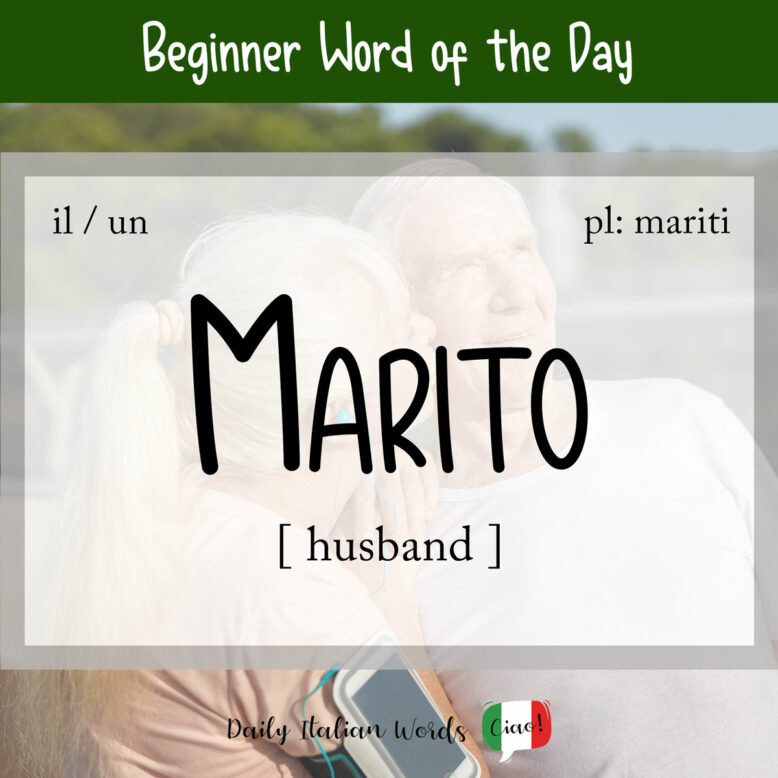A few months ago, we wrote an article about the word moglie (wife), so now it’s time to talk about the other half of the equation!
The word for husband in Italian is marito (masculine, plural: mariti). It comes from the Latin maritus which in turn is a derivative of mas / maris meaning male.

Vi dichiaro marito e moglie. Ora può baciare la sposa.
I declare you husband and wife. Now you may kiss the bride.

The diminutive maritino (literally ‘little husband‘) may be used by a wife towards her husband as an affectionate term of endearment, much like the English word hubby. Marituccio on the other hand is derogatory.
Below are a few verbs you’ll frequently see used with marito:
- avere marito* = to be married (lit. to have a husband)
- prendere marito* = to get married (lit. to take a husband)
- cercare marito* = to look for a husband
- trovare marito* = to find a husband
- amare il proprio marito = to love one’s husband
- essere separata dal proprio marito = to be separated from one’s husband
- perdere il proprio marito = to lose one’s husband
*Note: in the first four examples I omitted the indefinite article un that would normally precede the word (un marito) because these phrases can be used without it. It is correct to say cerco marito to communicate your desire to find a husband and get married, just like you can say cerco casa to say you’re looking for a house to buy or rent.
If you’d like to say that you’re marrying someone and want to state his name, you can say prendere per marito + the name of the person. For example: Prendo per marito Carlo / Prendo Carlo per marito (I’m marrying Carlo).
Età da marito (lit: husband age) is the minimum age at which a woman is permitted by law to marry. Sometimes the expression da marito is used without età to describe a woman of marriageable age (e.g. una ragazza da marito = a marriageable girl).

When a woman has difficulty finding a husband, you might hear her described as not being able to find even uno straccio di marito (lit: a shred of a husband). It may also be used to describe a man who isn’t marriage material.
A causa del suo passato non è mai riuscita a trovare uno straccio di marito.
Due to her past she never had a hope in hell of finding a husband.
An extremely common saying in Italian is « Tra moglie e marito non mettere il dito » which literally means Do not put your finger between wife and husband. It means that one must not meddle in affairs of couples because it is impossible to know all the intimate details of their relationship.
Heather Broster is a graduate with honours in linguistics from the University of Western Ontario. She is an aspiring polyglot, proficient in English and Italian, as well as Japanese, Welsh, and French to varying degrees of fluency. Originally from Toronto, Heather has resided in various countries, notably Italy for a period of six years. Her primary focus lies in the fields of language acquisition, education, and bilingual instruction.


